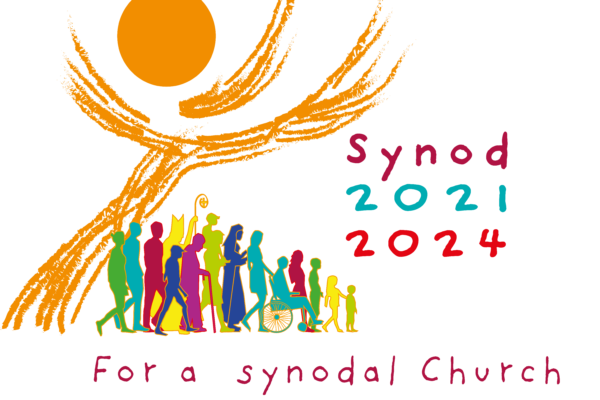CONTINUING THE SYNOD JOURNEY
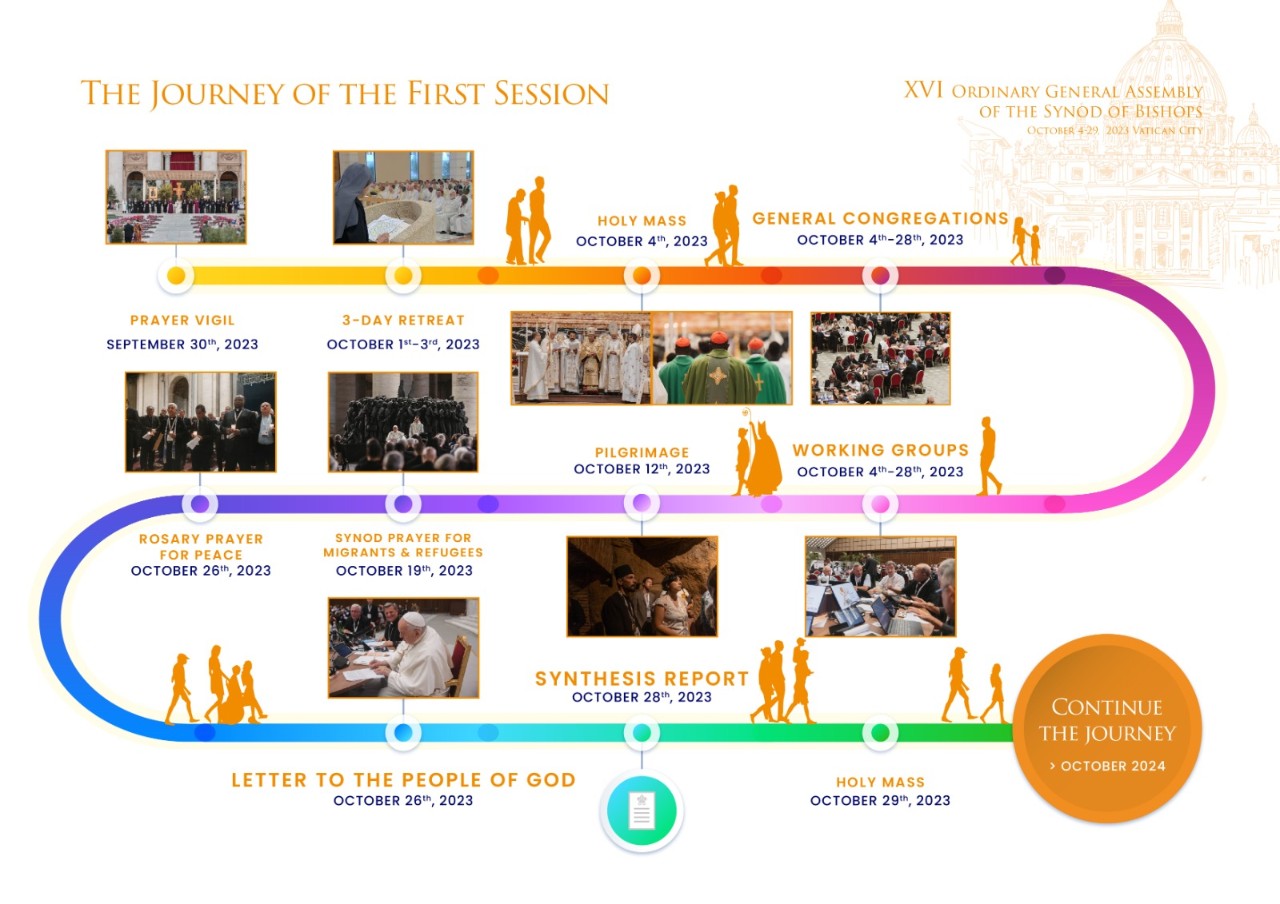
Participants of the Synod wrote a Letter to the People of God at the conclusion of their time together reflecting on the process and expressing how they see the Spirit calling the Church forward.
THE UNIVERSAL PHASE
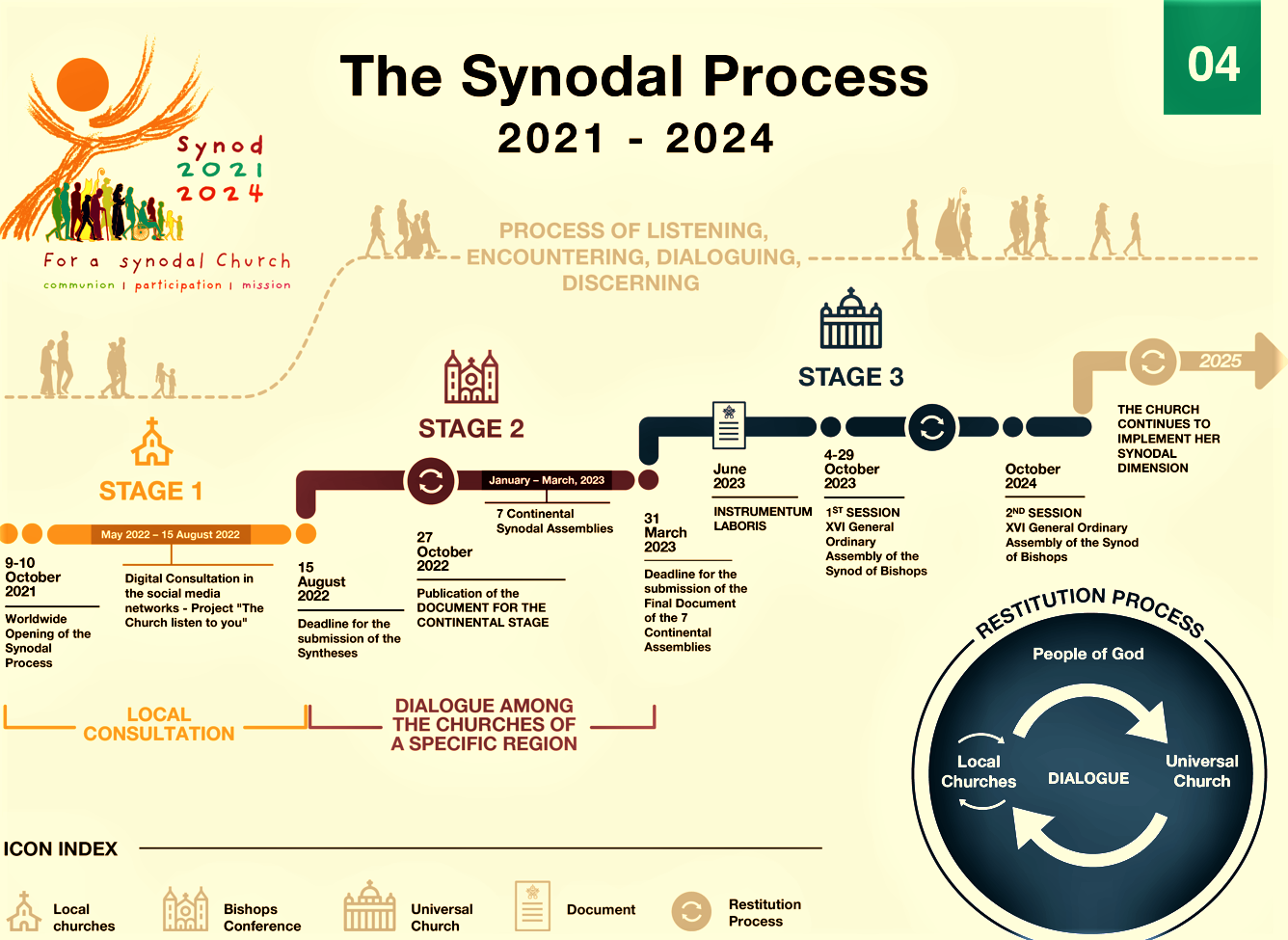
"The IL is not a document of the Holy See, but of the whole Church. It is not a document written at a desk. It is a document in which all are co-authors, each for the part he or she is called to play in the Church, in docility to the Spirit. [...] You will not find in the text a theoretical systematic explanation of synodality, but the fruit of a Church experience, of a journey in which we have all learnt more by walking together and questioning ourselves on the meaning of this experience. I can say that the IL is a text in which no one's voice is missing: that of the Holy People of God; of the Pastors, who have ensured ecclesial discernment with their participation; of the Pope, who has always accompanied us, supported us, encouraged us to move forward. The IL is also an opportunity for the entire People of God to continue the journey that has begun, and an opportunity to involve those who have not been involved so far," said Cardinal Mario Grech, Secretary General of the General Secretariat of the Synod, speaking at the press conference presenting the Instrumentum Laboris (IL): the working document for the first session of the 16th Ordinary General Assembly of the Synod of Bishops (4-29 October 2023).
The Palmerston North Diocese has created a short introductory video to explain the structure and purpose of Instrumentum Laboris (IL).
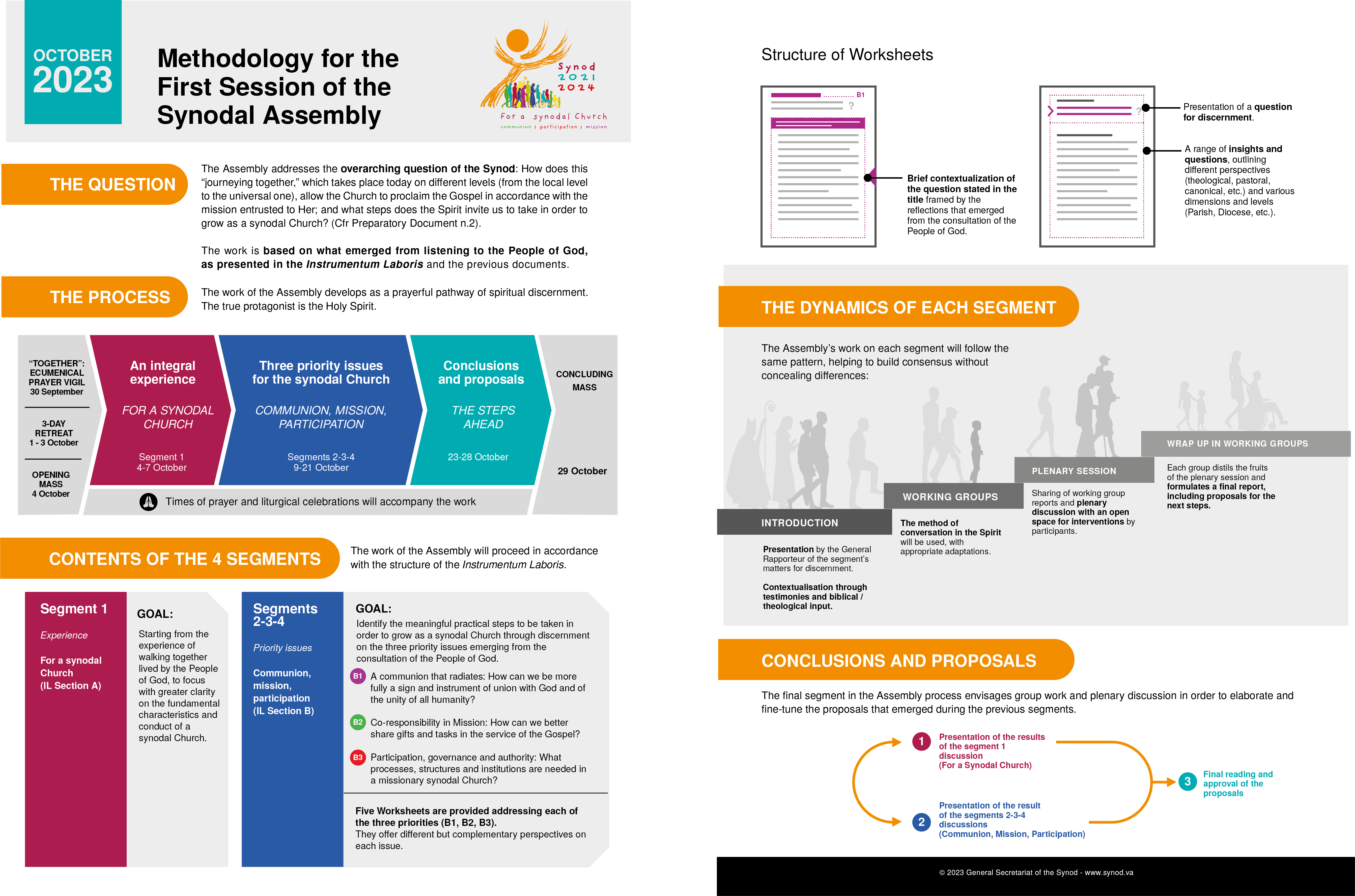
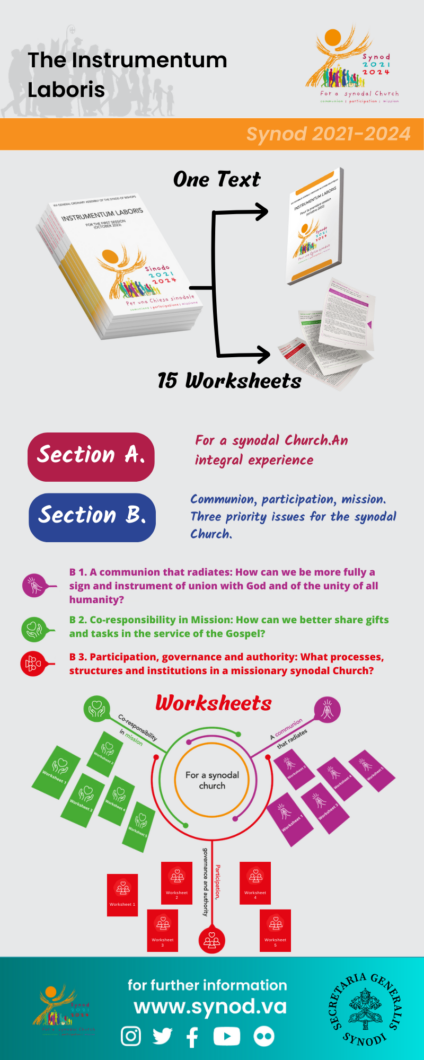
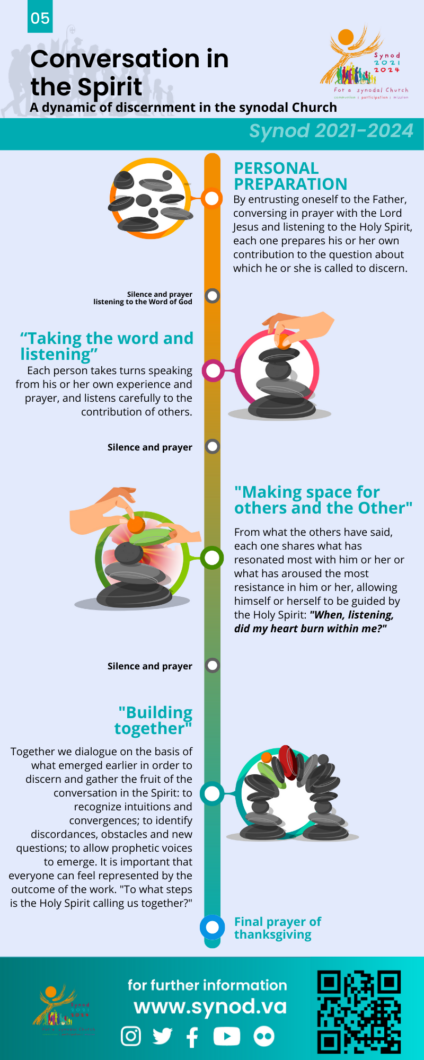
CONTINENTAL PHASE
The Consultation Phase Concludes
On Friday, 31 March 2023, the Continental Stage, that is, the second stage of the synodal process, officially ended and with it the time of broad-based consultation of the People of God. The inclusion of a time to listen, dialogue and discern among the Churches of the same geographical area after the Local Stage (diocesan and national) represented a new feature that was introduced by this synodal process.
This new stage was not confined to the mere celebration of seven continental assemblies, but was a real process of listening and discernment on a continental level. The question that formed the basis for these assemblies was the same and unique question of the synodal process as a whole, namely: How is our 'walking together' which enables the Church to proclaim the Gospel in accord with the mission entrusted to her, being achieved today at the different levels (from local to universal)?
With the conclusion of the continental phase the consultation also ends but not the dialogue with the People of God.
The General Secretariat of the Synod expresses its heartfelt gratitude to all those who have engaged in this process with great seriousness and enthusiasm. The Continental Stage led to a greater awareness of the importance of walking together in the Church as a communion of communities, strengthening the dialogue between Particular Churches and the Universal Church.
CONTINENTAL PHASE - The Response of Aotearoa
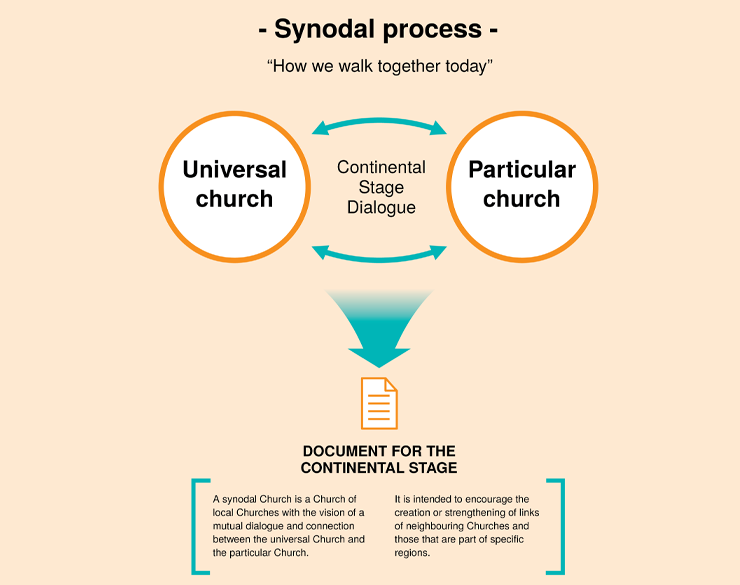
The Synod on Synodality has reached the continental phase. The continental phase for Oceania involves the countries and territories covered by the Bishops Conferences of New Zealand, Australia, Papua New Guinea and Solomon Islands and the Episcopal Conference of the Pacific.
On 27 October the Holy See released the Document for the Continental Stage, which is the result of the discernment of all the responses received from around the world.
We then carried out a discernment process in Aotearoa New Zealand on this document. The results of this discernment were integrated with similar documents from the other Bishops Conferences of Oceania and a gathering in Melbourne. The resulting draft is then considered by the bishops of the region at the Assembly of the Federation of Bishops Conferences of Oceania in Suva in February. They will finalise a synthesis from Oceania to go to the Synod Office in March.
The discernment process on the Document for the Continental Stage took place between 19 October and 5 December, so that the New Zealand response could be ready by 22 December.
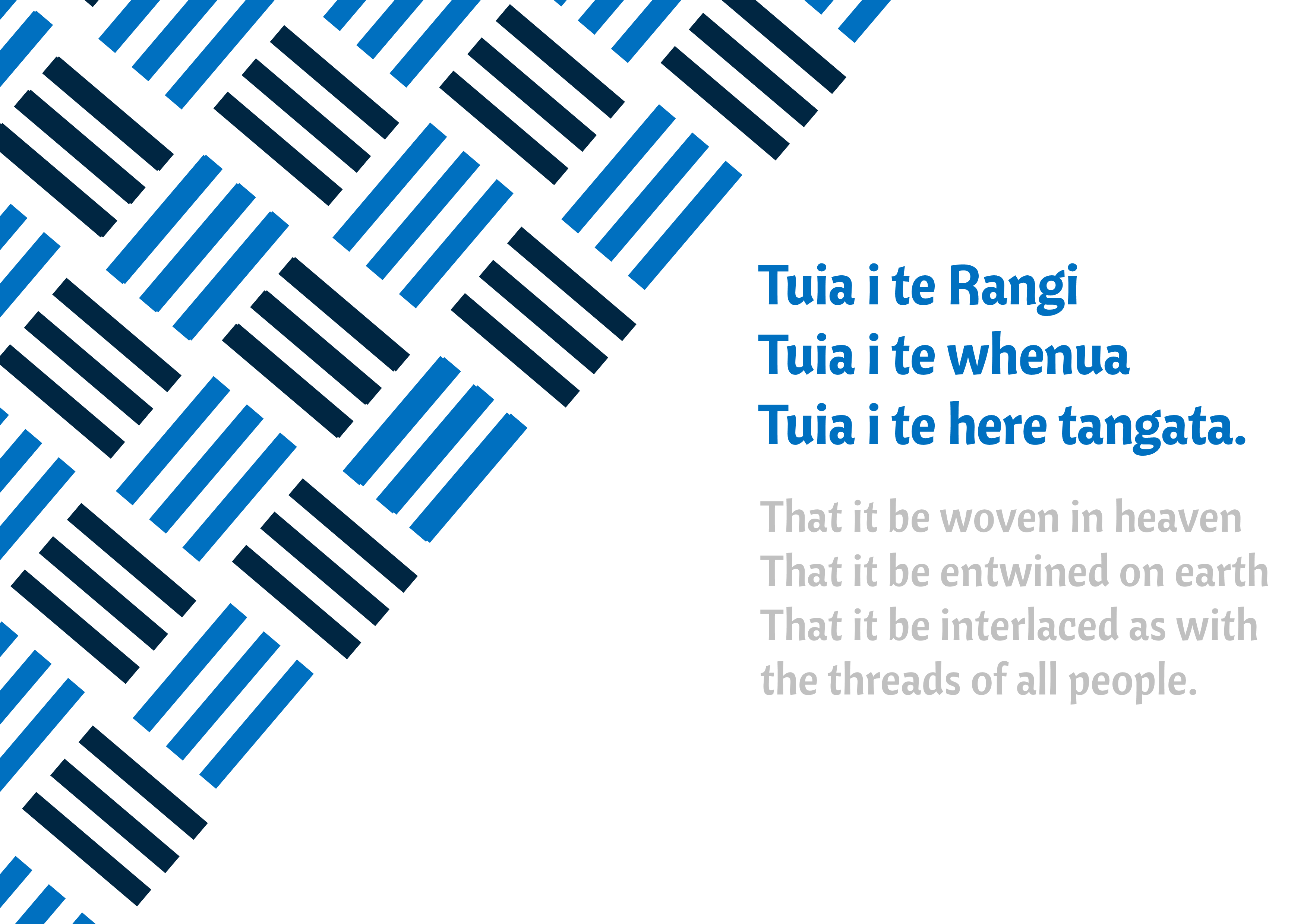
Reading the Diocesan Response
The Synod on Synodality is a process by which the Church listens. To all voices. As a result, the synthesis of all that has been heard in the diocese is complex and at times contradictory.
When reading this document, you are invited to do so with an open and compassionate heart. It may contain ideas that you disagree with. That is OK it is the voice of ‘the other’.
Instructions from Rome regarding the synthesis process note that:
The purpose of the synthesis is not to present a chronology of the stages of the synodal process that were followed, nor to draw up a report that lists indiscriminately all the points that emerged during the work. Rather, as the culmination of a communal spiritual discernment, the synthesis aims to gather and express the fruits of the synodal process in a way that is understandable even to those who did not participate, indicating how the Holy Spirit’s call to the Church has been understood in the local context. Rome March 2022
The Diocesan Process
The Diocesan Consultation phase has concluded with the submission of the diocesan response to the New Zealand Bishop's Conference.
The Church recognises that the timing of this consultation process was not perfect. For the Church of Auckland, we were in lockdown and then limited in our face-to-face meeting capacity. Therefore, we are extremely grateful to all those who gathered either in person or through technology to listen to others and respond. This is not the end of the Synod process. Being a listening Church is our way of being. The practice we have had in participating will assist us going forward to be synodal.
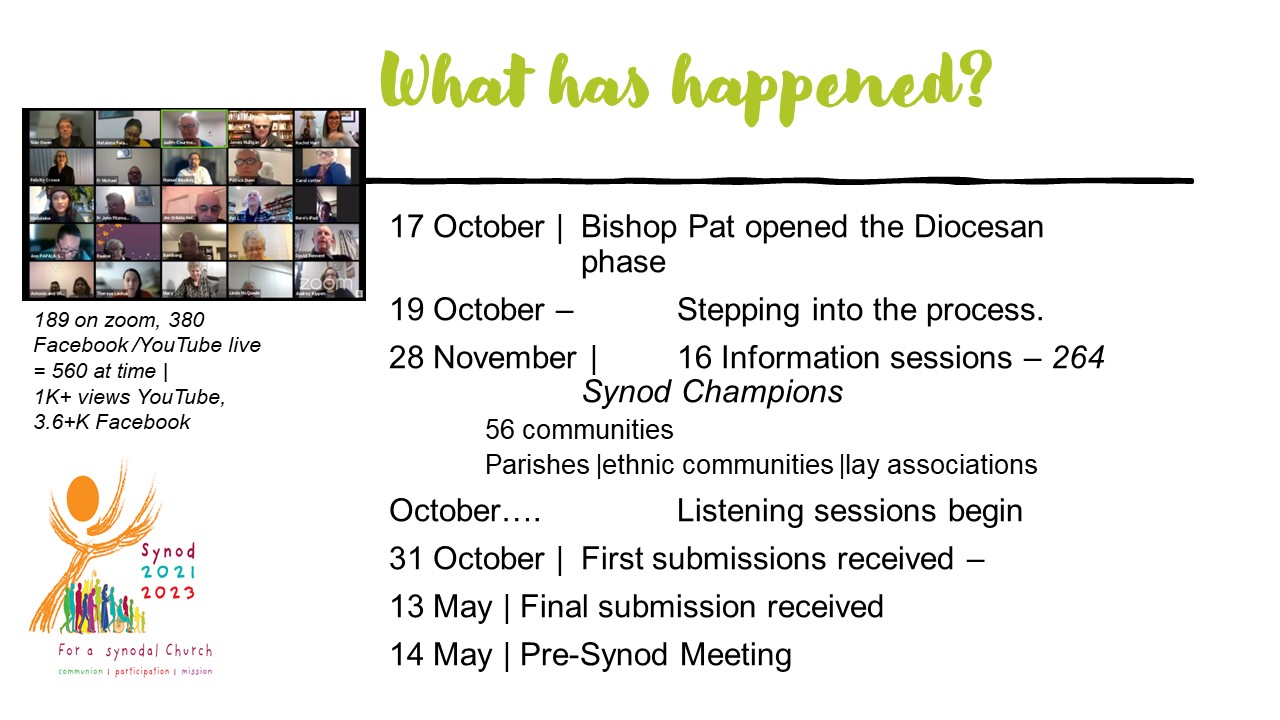
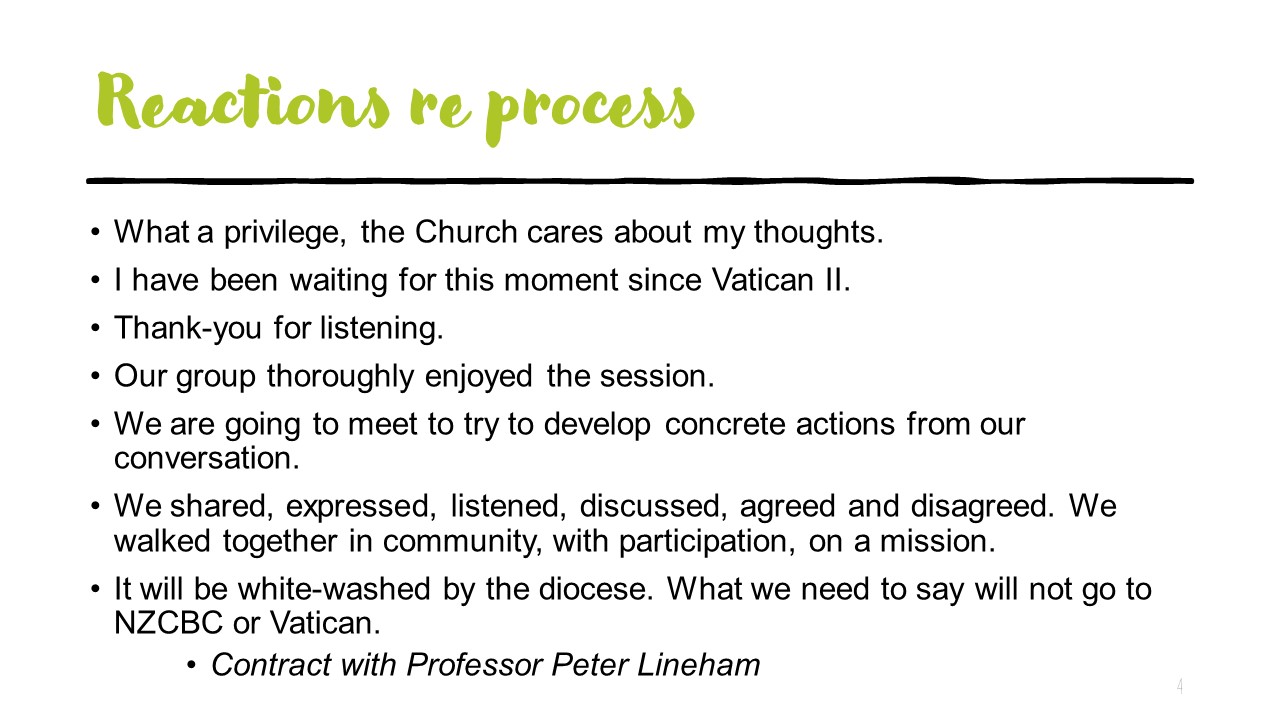
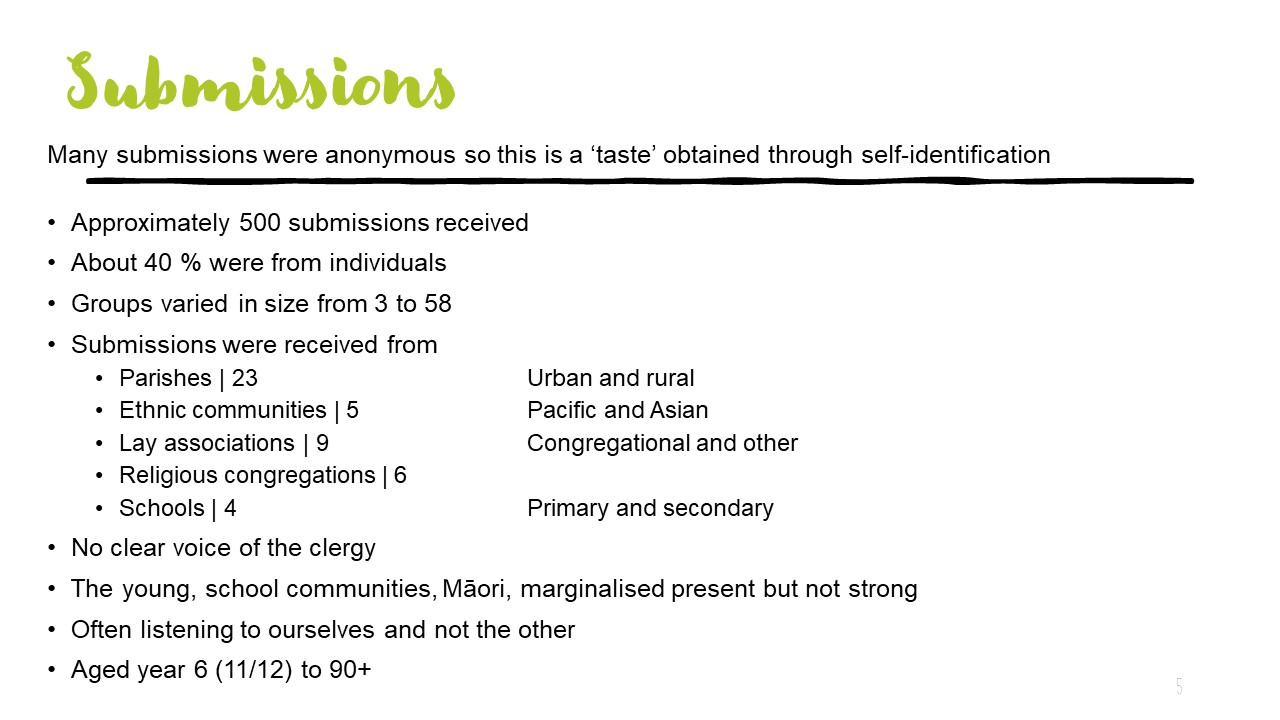
Every session of the Second Vatican Council began with the prayer Adsumus Sancte Spiritus, the first word of the original Latin, meaning, “We stand before You, Holy Spirit”. This prayer has been historically used at Councils, Synods and other Church gatherings for hundreds of years, and is attributed to Saint Isidore of Seville (c. 560 - 4 April 636). This version is a contemporary one written in a syntax that makes community reading easier. It has been translated into Te Reo by the diocesan Vicar for Māori.
We stand before You, Holy Spirit, e te Wairua Tapu
as we gather together in Your name.
With You alone to guide us,
make Yourself at home in our hearts, o mātou ngākau
Teach us the way we must go and how we are to pursue it.
We are weak and sinful; do not let us promote disorder.
Do not let ignorance lead us down the wrong path
nor partiality influence our actions.
Let us find in You our unity kōtahitanga
so that we may journey together to eternal life te oranga tonutanga
and not stray from the way of truth te ara o te pono
and what is right te ara o te tika.
All this we ask of You,
who are at work in every place and time,
in the communion of the Father te Matua and the Son te Tamaiti,
forever and ever.
Amen.
E te Wairua Tapu, ka tū mātou ki tōu aroaro,
i a mātou e hui kōtahi i runga i tōu ingoa.
Ko koe anake hei arahi i a mātou,
Noho mai koe ki o mātou ngākau;
Whakaakona mātou ki te huarahi e tika ai te haere,
ā, me pehea e taea e mātou te whai atu.
He ngoikore mātou, he hunga hara anō hoki;
Kaua mātou e kawea i te mate koretake.
Kaua e tukua te kuware e arahi i a mātou ki te huarahi o te hē
Kaua anō hoki te mariu e whakaaweawe ki a mātou mahi.
Kia kite mātou i ta mātou kōtahitanga i roto i a koe
kia haere ngātahi ai mātou ki te oranga tonutanga
ā, kaua hoki mātou e kotiti kē i te ara o te pono
me te ara tika.
Ka īnoi mātou ki a koe,
nāu e ora nei i ngā wahi katoa me ngā wā katoa,
i te kōtahitanga o te Matua me te Tamaiti
mō āke āke. Āmene.

